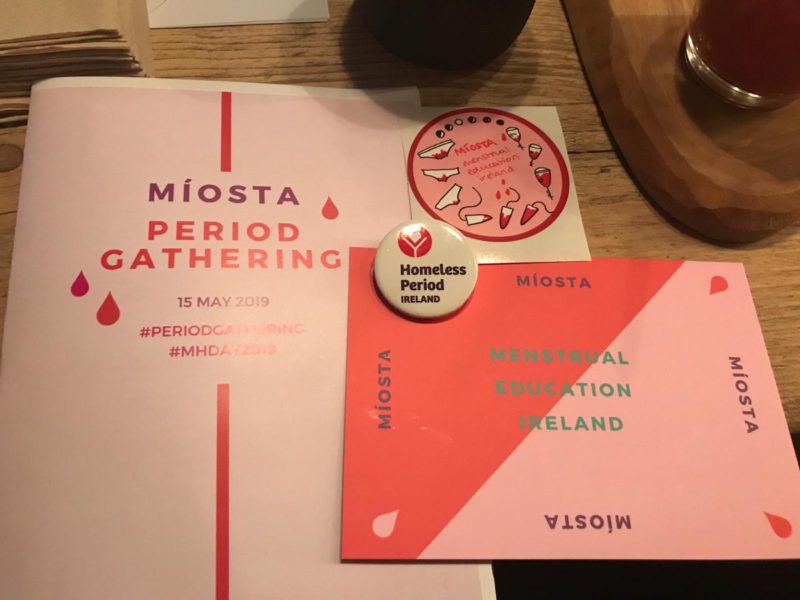As part of Trinity College Dublin Students’ Union’s (TCDSU) Empowerment Week, the Global Room presented Míosta Menstrual Education Ireland, a safe space for students to talk about their periods and learn more about reusable products.
Míosta, meaning menstrual in Irish, was founded by Charlotte Amrouche in the summer of 2018 and has already seen a surge in interest from universities around Ireland. Speaking to The University Times, Amrouche spoke of growing up in West Cork and her lack of awareness about menstrual education.
The idea for Míosta was conceived when one of Amrouche’s colleagues asked her what menstrual products shes uses. It was at this moment that Amrouche began questioning why she was embarrassed to be asked such a simple question. This story highlighted the issue of menstrual education, or lack thereof, for women in Ireland.
We all remember those times in secondary school where we would, in a hushed voice, ask a friend for a pad and, using covert ninja ninja tactics, shove it up our school jumper sleeve so that no one would see the exchange take place. This is a relatable story for most women.
Amrouche is confident the issue lies in a fundamental lack of education – and the fact that there are few places for girls and women through all stages of life to talk about these things. Amrouche said this “project aims to have both the educational element of reusable products while also creating powerful spaces to crush any stigma or shame on conversation about periods and menstrual health”.
The Míosta workshops come in three different models – ranging from one hour to two and a half hours. Each contains different exercises such as “sharing stories, looking at reusable products, contemporary issues, and lastly a guide on menstrual activism intervention”. It is clear that these are issues Amrouche is passionate about. Míosta itself is a completely self-funded project with a clear aim of staying local and ground level, giving resources and guidance where it’s needed.
So far, Amrouche has brought Míosta to some of Ireland’s larger universities in Dublin, Limerick, Galway, Cork and Maynooth. However, smaller, more local higher level institutions have not responded to Míosta, nor shown much interest in hosting the workshops.
Similarly, Amrouche noted with amusement how different nationalities engaged with the workshop. “For instance, people from Germany are so on top of it”, she said. So how are we lagging behind? Once again, the solution comes back to education.
The positive reaction the workshops have received has proved the validity of the project – the Míosta Facebook and Instagram pages are also full of complimentary reviews. Instagram, she says, is “a really great resource and a really great way of connecting with people. I’m kind of overwhelmed by how much people are interested and how much it’s grown in over a year”.
In an email to The University Times, TCDSU Welfare Officer Aisling Leen said: “It was a pleasure to welcome Charlotte from Míosta to Trinity for a workshop on menstrual education.”
Leen said she “felt that the workshop fit in well with the theme of TCDSU Empowerment Week. To openly discussed stigmatised subjects is empowering. Participants felt particularly empowered by the idea of making efforts to reduce our carbon footprint by using more sustainable menstrual products”.
In terms of expanding on her idea, Amrouche is interested in moving the workshop in the future to mother and toddler groups and teacher training events. However, she says that for now, “I want to keep going steady with universities because it’s a nice level of change in people’s lives”.







